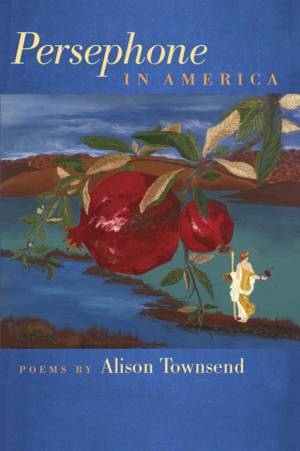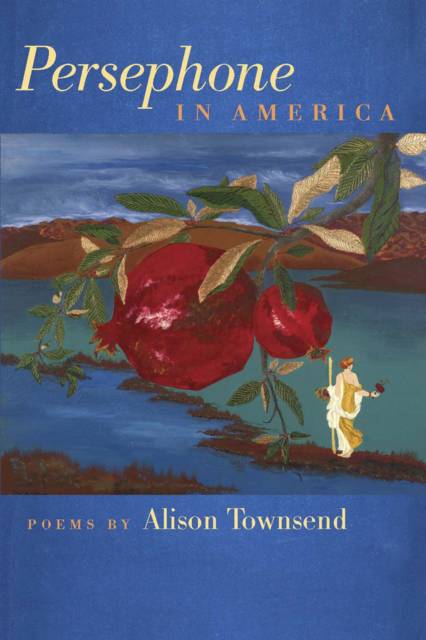
- Retrait gratuit dans votre magasin Club
- 7.000.000 titres dans notre catalogue
- Payer en toute sécurité
- Toujours un magasin près de chez vous
- Retrait gratuit dans votre magasin Club
- 7.000.0000 titres dans notre catalogue
- Payer en toute sécurité
- Toujours un magasin près de chez vous
Description
In Persephone in America, Alison Townsend deftly weaves autobiography with myth in this reinvention of the tale of Demeter and Persephone as seen from the modern woman's perspective. Fraught with emotional honesty, this captivating collection of lyrical and narrative poems chronicles the struggles of the figurative Persephone in three parts--the abduction, descent to the underworld, and return. Townsend turns a shrewd eye to her own experiences, as well as to the lives of other women, to offer an unflinching yet deeply compassionate exploration of such themes as girlhood and the vulnerability of the motherless; the demons of depression, addiction, and abuse; as well as passion, aging, and celebration of the natural world.
Although the poems traverse dark emotional territory at times, the picture that emerges ultimately is one of revelation and wisdom. Persephone in America is above all a journey of the soul, following the narrator as she explores what it means to be a woman in America, at times descending into darkness, only to emerge into redemption and realize "time's sweet and invincible secret--that everything repeats--and we watch it." Townsend's candid portrait of female loss and discovery seeks to illuminate the truths inherent in myth, and the awakenings that hide in our darkest moments.
Persephone, Pretending(Madison, Wisconsin)
When the news says that the girl
who had been missing almost four days,
only to be found in a marshy area
at the edge of our medium-sized city,
was faking it all along, I wondered
what made her do it. I'd seen
her face--bright smile, dark eyes--
on a flier masking-taped to a pillar
at the airport the week before,
felt the involuntary frisson
of the curious, then only fear
at the thought of a girl abducted
in this place once voted
"America's most livable city."
She must have wanted
something she couldn't name,
that good girl with good grades
who looks like so many girls
in my own classes, but who keeps
changing her story. It happened
here; no, it happened there; no,
I really just wanted to be alone.
Then she turns her face away,
tired of telling her tale,
not sure what to make up next
or where invention will take her.
"Fictitious victimization disorder,"
Time magazine claims, but I wonder
what else, imagining her in the marsh,
cold, unrepentant, powerless, her mind
gone muddy with lack of sleep,
no way out of this lie she almost
believes, or the lies ahead,
nothing but memory of the rope,
duct tape, cough medicine,
and knife she bought at the PDQ
with her own cash, wanting
to be taken by someone so badly,
she takes us, she does it to herself.
Spécifications
Parties prenantes
- Auteur(s) :
- Editeur:
Contenu
- Nombre de pages :
- 128
- Langue:
- Anglais
- Collection :
Caractéristiques
- EAN:
- 9780809328963
- Date de parution :
- 01-03-09
- Format:
- Livre broché
- Format numérique:
- Trade paperback (VS)
- Dimensions :
- 165 mm x 229 mm
- Poids :
- 217 g

Les avis
Nous publions uniquement les avis qui respectent les conditions requises. Consultez nos conditions pour les avis.






